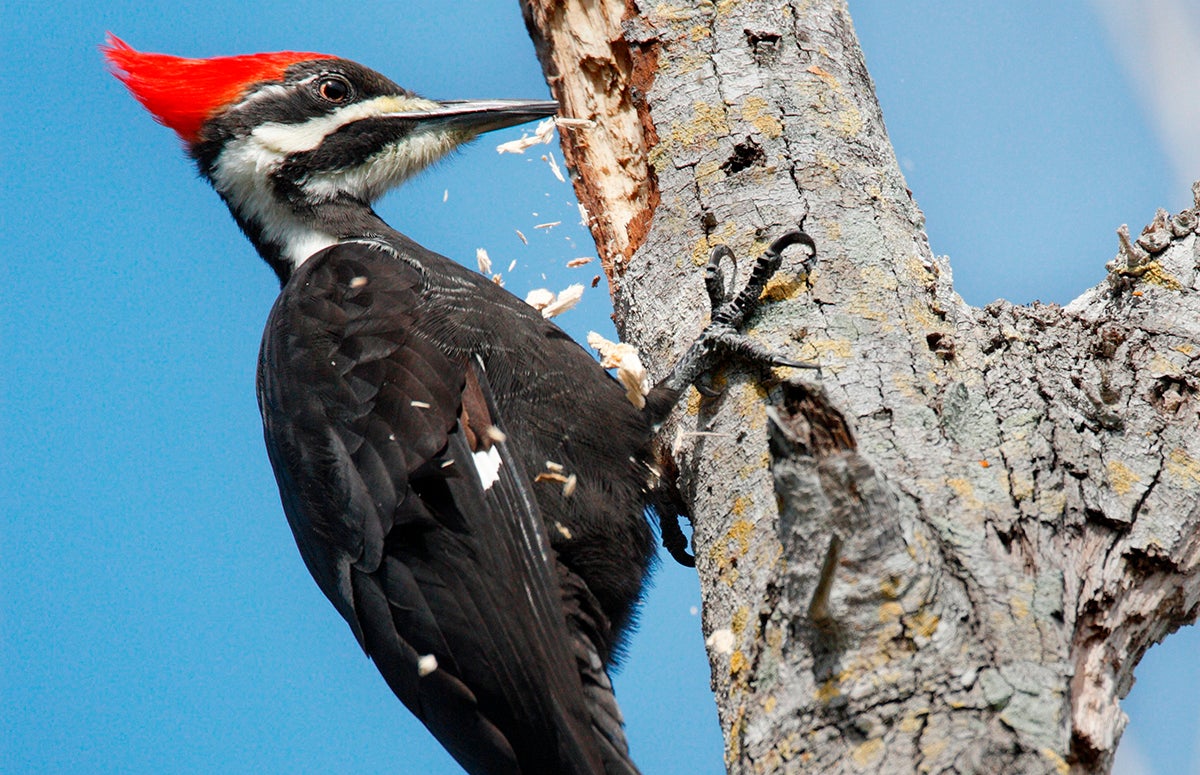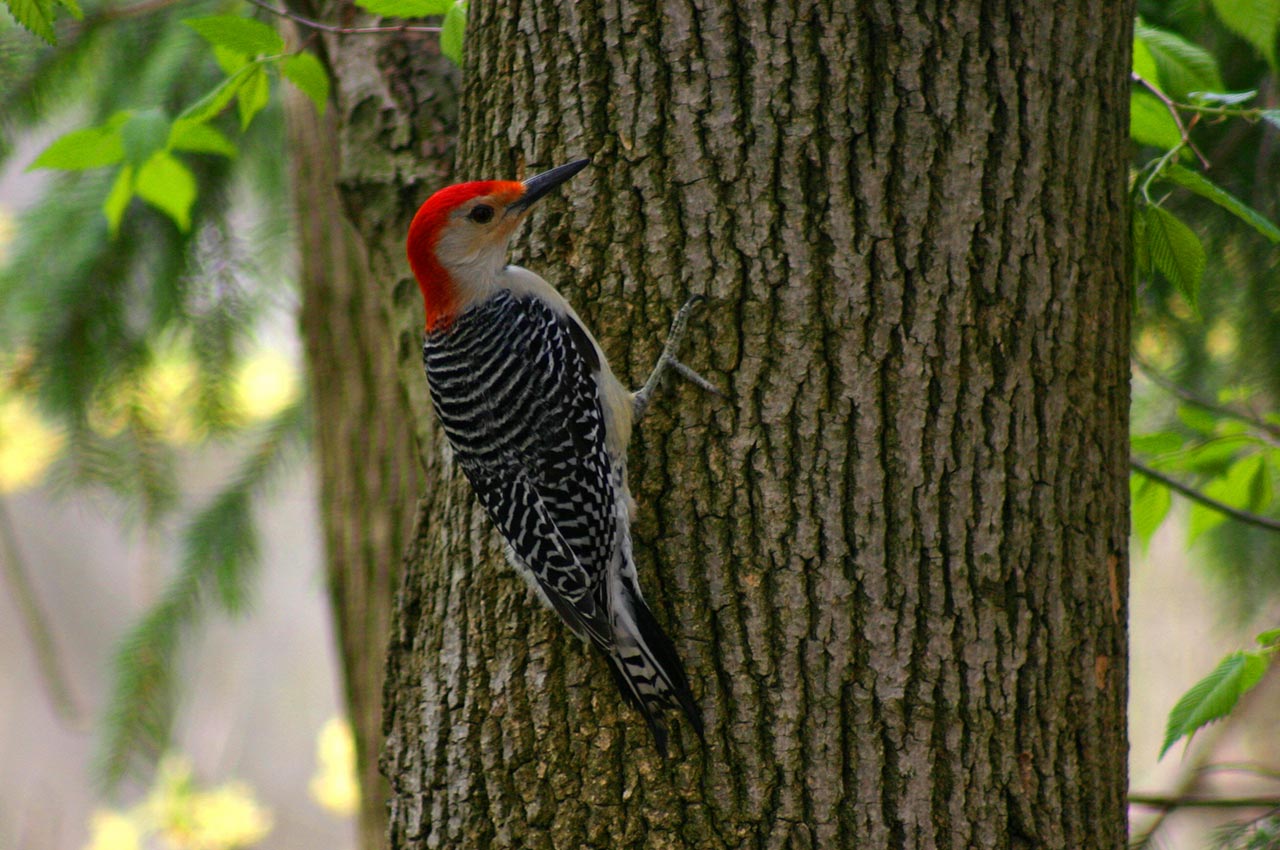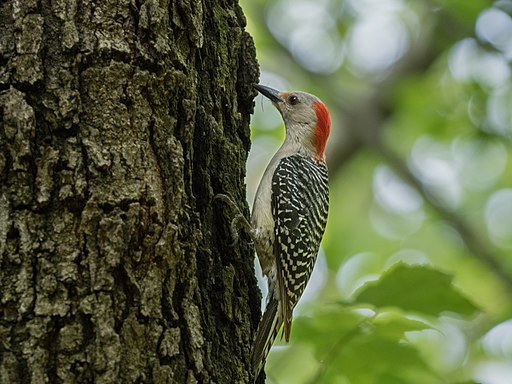Woodpeckers Unleashed: Checking Out the Wonders of These Proficient Tree Climbers
Woodpeckers, with their unique markings and rhythmic drumming resembling with wooded areas, hold an unique area in the bird world. Their specialized composition and adjustments enable them to navigate vertical surface areas with unmatched skill. Their proficiency of tree climbing is just one element of their interesting actions. As we look into the detailed details of woodpeckers' nesting behaviors, feeding strategies, and the ongoing preservation efforts to safeguard these impressive birds, a deeper appreciation for their place in nature unravels.
Composition and Adaptations
When checking out the makeup and adaptations of woodpeckers, one can observe exceptional attributes that make it possible for these birds to thrive in their specialized ecological specific niche. Woodpeckers are outfitted with a collection of one-of-a-kind anatomical attributes that assist them in their woodpecking behavior. One of the most popular features is their strong, chisel-like beak, which is specialized for drilling into wood to discover pests or develop nesting dental caries. This beak is sustained by strong neck muscle mass and an extremely created head framework that acts as a shock absorber, allowing woodpeckers to repetitively peck at trees without causing brain injury. Furthermore, woodpeckers have zygodactyl feet, with 2 toes facing ahead and two encountering in reverse, offering a firm grasp on tree trunks while they look for food or drum for communication.
Additionally, woodpeckers have a special tongue structure that is long, barbed, and sticky, allowing them to remove pests from gaps in wood. This specialized adjustment enables woodpeckers to make use of a food resource that is inaccessible to several various other bird types. On the whole, the makeup and adjustments of woodpeckers display the exceptional transformative services that have enabled these birds to grow in their arboreal environment.
Drumming Behavior
Having actually checked out the anatomy and adjustments of woodpeckers, the focus currently moves to understanding their drumming actions, a distinct element of their interaction and territorial screens. Drumming is a vital kind of interaction amongst woodpeckers, serving numerous purposes such as establishing areas, attracting companions, and signaling alarm system. Each woodpecker types has a distinct drumming pattern that helps people identify members of their very own species and distinguish them from rivals or predators.
Woodpeckers create drumming sounds by quickly pecking on powerful surfaces such as dead trees, energy poles, or also metal objects, producing a series of rhythmic beats. The intensity and rate of drumming can vary based on the objective; for instance, a quick drumming series may symbolize aggressiveness towards burglars, while a slower and softer drumming pattern could suggest courtship (Woodpeckers in Florida). In addition, woodpeckers might adjust the frequency and duration of their drumming to convey certain messages successfully
Nesting Behaviors
Discovering the nesting habits of woodpeckers exposes interesting understandings right into their reproductive actions and habitat options. Woodpeckers are understood for their one-of-a-kind nesting choices, typically digging deep into dental caries in trees to create sheltered spaces for raising their young. These cavities serve not only as a nesting website yet additionally as a secure refuge from predators and harsh weather condition.
Woodpeckers show a high degree of integrity to their nesting sites, often returning to the very same location every year. This actions highlights the relevance of ideal environment schedule for their reproductive success. The option of a nesting website is critical for woodpeckers, with variables such as tree types, height, and degeneration phase playing substantial roles in their decision-making procedure.
Remarkably, some woodpecker types are known to excavate numerous tooth cavities within their region, supplying themselves with alternate nesting alternatives. find here This technique might function as a form of insurance coverage against potential risks or disruptions to their main nesting site.

Feeding Techniques
One of the most distinct feeding actions of woodpeckers is drumming, which entails quick pecking on trees to discover bugs below the bark. Woodpeckers are also understood to excavate cavities in trees to accessibility surprise insect larvae or sap. Some varieties, like the acorn woodpecker, store nuts in specially created holes called granaries.
Preservation Initiatives
Amidst the intricate feeding strategies showed by woodpeckers, the preservation browse around this site efforts focused on safeguarding these remarkable birds play an important function in protecting their habitats and populaces. Woodpeckers deal with various hazards to their survival, consisting of habitat loss due to logging, climate adjustment altering their communities, and crashes with manufactured frameworks such as buildings and vehicles - Woodpeckers in Florida. Preservationists are actively functioning to resolve these difficulties and ensure the long-lasting well-being of woodpecker types

Education and public awareness projects are likewise vital parts of woodpecker conservation initiatives. By increasing awareness regarding the value of these birds in preserving healthy woodland communities, guardians can gather support for habitat conservation efforts and promote liable land monitoring practices. Through joint efforts between scientists, policymakers, and local neighborhoods, we can interact to secure a future where woodpeckers prosper in their all-natural habitats.
Final Thought

Comments on “Woodpeckers in Florida: Recognition Tips and Environment Preferences”